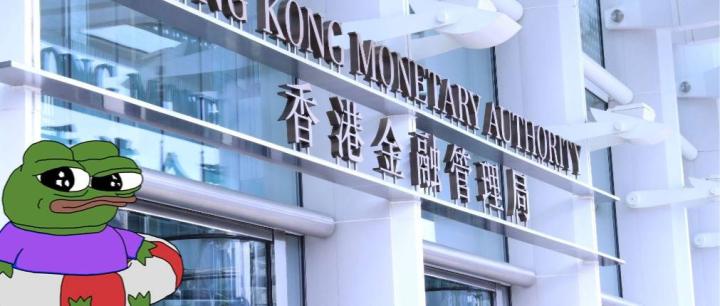The White House's 166-page crypto report is not just "paperwork"! Token classification, tokenization, DeFi, airdrop "safe harbor", DePIN network digital asset distribution exemption, lending, derivatives, taxation......
Source:US White House
Compiled by: KarenZ, Foresight News
On July 31st Beijing time, the White House Presidential Working Group on Digital Asset Markets released the report "Strengthening US Leadership in Digital Financial Technology".
The 166-page report covers the digital asset ecosystem overview, digital market structure, and existing regulatory frameworks, providing over 100 relatively clear legislative recommendations and guidelines on digital asset classification, payment stablecoins, regulatory frameworks, and taxation. The core objective is to ensure the United States' global leadership in digital assets and blockchain technology, and to promote the development of a clear regulatory framework that fosters innovation, protects consumers and investors, and mitigates financial risks.
[The rest of the translation follows the same professional and accurate approach, maintaining the specific terminology translations as instructed.]Current Regulatory Framework
Federal Level
- U.S. Securities and Exchange Commission (SEC) and Commodity Futures Trading Commission (CFTC): Primary federal regulators of secondary digital asset markets.
- Self-regulatory organizations such as the Financial Industry Regulatory Authority (FINRA) and National Futures Association (NFA) also assist in regulating and supervising certain financial industry participants.
- Banking regulators: Federal Reserve, Office of the Comptroller of the Currency (OCC), Federal Deposit Insurance Corporation, National Credit Union Administration (NCUA).
- U.S. Department of the Treasury: Financial Crimes Enforcement Network (FinCEN) requires financial institutions to submit Suspicious Activity Reports (SARs) and Currency Transaction Reports (CTRs) through the Bank Secrecy Act (BSA) to protect the financial system from illegal activities and combat money laundering and terrorist financing; Office of Foreign Assets Control (OFAC) is responsible for U.S. economic sanctions; Internal Revenue Service (IRS) is responsible for tax collection and providing tax-related assistance to taxpayers.
State Level
Some state financial services agencies have applied state money transmission laws to digital asset custodians and trading platforms, requiring intermediaries to register as money transmitters to serve clients in their respective states. Some states exclude digital asset trading from money transmission laws, potentially exempting companies exclusively dealing in digital assets from licensing requirements. Other states have established specific regulatory frameworks for digital assets.
- New York State (NYDFS): Requires digital asset enterprises to obtain a "BitLicense", but has been criticized for its lengthy process.
- Wyoming: Established "Special Purpose Depository Institution" (SPDI) licenses and recognizes DAOs as legal entities.
- California: Will implement specific digital asset regulations in 2026.
Key Market Activities Requiring Further Regulatory Clarification
The report also discusses key market activities needing further regulatory clarification, including:
- Digital asset issuance (ICO, airdrops, forks);
- Trading;
- Custody and wallets;
- Clearing and settlement;
- Lending and collateralization;
- Tokenization.
Regarding tokenization, the report cites industry estimates that over $600 billion in "real-world assets" may be tokenized by 2030. The regulatory structure for tokenization depends on the tokenized asset, not just the tokenization process itself. Where tokenization tools are regulated, they are often treated as securities because a significant portion of current tokenization transaction volume comes from securities-based underlying assets (such as fixed income and private credit). Other non-securities uses of tokenization include tokenizing commodities (like gold) and non-financial assets (such as commercial real estate and rare items).
[The rest of the document follows the same translation approach]- Clarify registration requirements for investment companies/investment advisors regarding custody of security-type digital assets.
- Assess whether to include some state-chartered trust institutions in the "qualified custodian" category.
II. Recommended Immediate Actions for CFTC
1. CFTC should consider utilizing its rule-making, interpretation, and exemption powers under the Commodity Exchange Act to advance:
- Provide clear guidance for Designated Contract Markets (DCMs) regarding leveraged, margin, or financing retail commodity spot trading involving digital assets.
- Clarify the criteria for determining digital assets as potential commodities.
- Update relevant rules if digital asset investment tools or their managers might be deemed "Commodity Pools" or need to register as Commodity Pool Operators (CPO).
- Collaborate with FinCEN to develop new regulations providing guidance for qualified intermediaries and other market participants on implementing Customer Identification Programs (CIPs) using new technologies.
- Allow institutions to provide bundled trading and custody services.
- Clarify the applicability of DeFi activities, smart contract protocols, and DAOs within existing CFTC registration frameworks (following the principle of technological neutrality).
- Guide Futures Commission Merchants (FCMs) on calculating and managing segregation obligations for digital asset custody.
- Clarify valuation reduction rules for registered intermediaries (including FCMs, Swap dealers, and derivatives clearing organizations) holding digital assets for margin calculation, capital and financial resource reporting, and settlement obligations.
- Review the criteria for digital assets as eligible collateral under CFTC Rule 1.49.
- Develop digital asset collateral guidelines for Derivatives Clearing Organizations (DCOs), covering:
- DCO financial resource requirements
- Asset valuation and margin reduction
- Settlement finality
- Self-custody and third-party custody handling
- 24/7 trading asset end-of-day reporting
- Legal risks of net settlement and collateral rights
- Promote the application of tokenized non-cash collateral as compliant margin.
- Clarify classification standards for digital asset Swaps and their margin and reporting requirements.
SEC and CFTC should coordinate to ensure an efficient rule-making process and seek public comments on rule-making proposals.
Regarding long-term planning, the US SEC and CFTC should explore providing flexibility to allow registered institutions to offer multiple services within a single user interface. CFTC should consider how to modify existing rules to allow the use of blockchain-based derivatives.
For example, combining exchange services with asset custody can enable real-time settlement. By integrating exchange and brokerage services, they can directly process customer orders using the same technology stack, achieving economies of scale and reducing operational complexity. However, exchanges and intermediaries must separate customer property from their own funds.
- Clarify the scope of application of the Bank Secrecy Act (BSA).
- Strengthen information sharing between public and private sectors regarding illegal financial risks.
- The Treasury Department and relevant agencies should provide clear AML/CFT compliance guidelines for traditional financial institutions and digital asset service providers, specifying requirements for Customer Identification Program (CIP), transaction monitoring, and Suspicious Activity Reports (SAR).
- Combat systemic illegal financial risks.
- Protect the rights of legitimate users.
- Technical standards and compliance tools.
Taxation
The Presidential Digital Asset Market Working Group is committed to addressing tax ambiguities in the digital asset field by providing clear tax guidelines and legislative adjustments, balancing innovation support and tax compliance needs.
Priority Guidance
The Treasury Department and Internal Revenue Service (IRS) should issue guidance:
- Clarify how unrealized gains and losses for digital assets as investment assets are determined in Adjusted Financial Statement Income (AFSI).
- Resolve whether trusts holding digital assets, staking these assets, and receiving staking rewards can be considered grantor trusts.
- Clarify whether "wrapping" digital assets (such as converting Bitcoin to a tokenized version on Ethereum) and "unwrapping" transactions constitute taxable events.
- Update IRS frequently asked questions about digital assets.
- Set a tax-exempt threshold for small digital asset income (such as airdrops, staking rewards, hard forks), simplifying small tax reporting (excluding node operators and digital asset mining taxpayers).
Additionally, the future working group will also provide guidance on taxation related to mining and staking, airdrops, Non-Fungible Tokens, digital asset losses, charitable donation deductions, etc.
Some potential legislation or guidance also includes requiring taxpayers to report foreign digital asset accounts, simplifying reporting requirements under the Income Tax Act, requiring reporting of basic information when transferring digital assets between centralized digital asset exchanges, and requiring digital asset brokers to report information on foreign controlling persons of certain passive entities.
Priority Legislative Recommendations
- Congress should enact legislation treating digital assets as a new asset class, subject to modified federal income tax securities or commodity tax laws. Expanded code provisions applicable to actively traded fungible digital assets should include: (a) "mark-to-market", "trading safe harbor", "securities lending", etc. Additionally, Section 1091 (wash sale rules) and Section 1259 (constructive sales) should also apply to digital assets. Alternatively, legislation could specify when digital asset commodities or other digital assets are considered securities or commodities for federal income tax purposes.
- Legislation should be enacted to classify payment stablecoins for federal income tax purposes, which the GENUS Act does not address. Considering the structural approach of payment stablecoins and potential gains or losses upon disposal, classifying them as debt seems most appropriate. If payment stablecoins are considered debt, legislation should also consider the applicability of existing federal income tax rules that might hinder widespread use of payment stablecoins as financial assets. Specifically, legislation should address wash sale and anti-bearer bond rules.
- Modify wash sale rules to add digital assets to the list of assets subject to wash sale rules. If such legislation is enacted, broker reporting provisions should be modified to reflect these wash sale rule changes. Wash sale rules should not apply to payment stablecoins.
- Clarify tax treatment for digital asset lending similar to securities lending.
US Bitcoin Strategic Reserve and Digital Asset Stockpiling
Regarding the US Bitcoin strategic reserve and digital asset stockpiling, the US Treasury Department has submitted recommendations to the White House on establishing and managing a Strategic Bitcoin Reserve and Digital Asset Stockpile. The Treasury Department will continue to coordinate with the White House and other working group members to advance appropriate subsequent measures to implement the operation of this reserve and stockpile.








